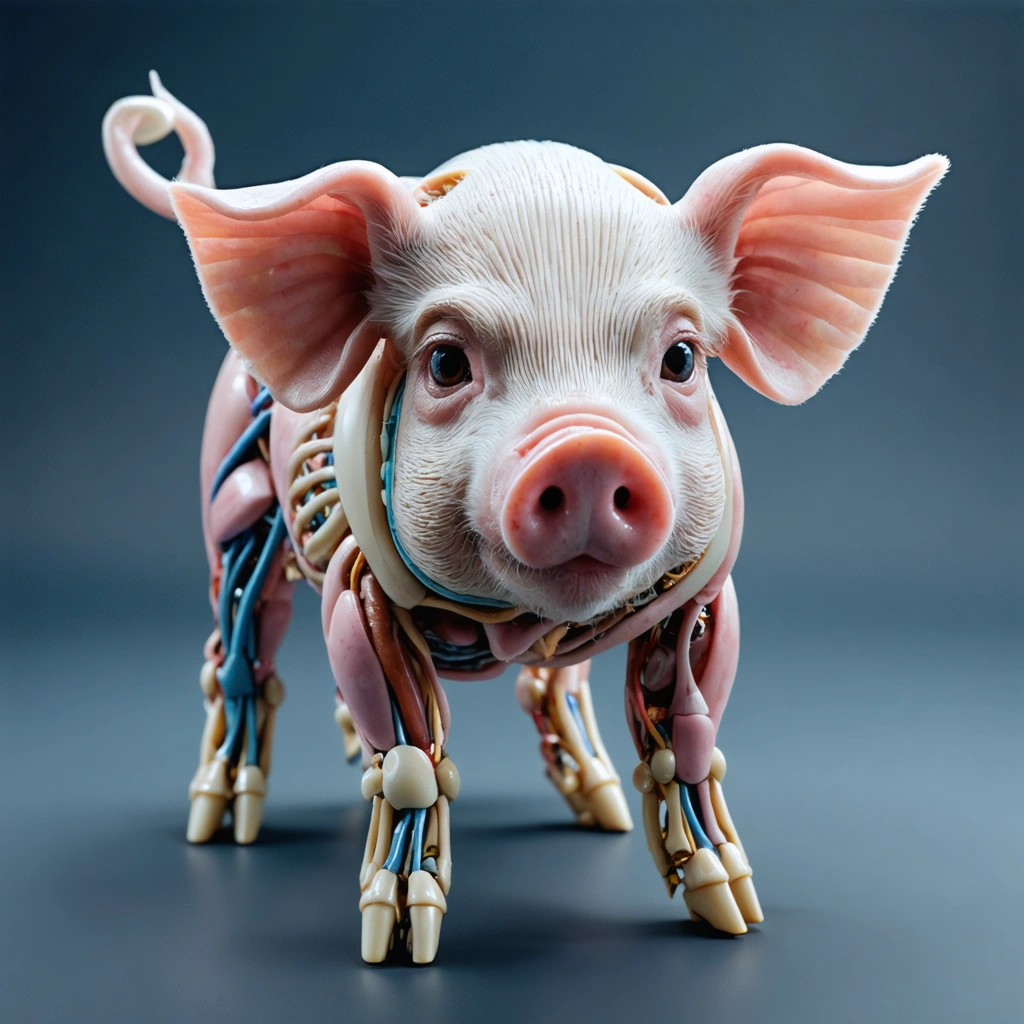
Introduction: New Frontiers in Transplantation
In today’s evolving medical landscape, the exploration of alternative organ sources represents not only a breakthrough in science but also a new business frontier with profound societal impact. Recent advances in genetic engineering have paved the way for xenotransplantation – the process of transplanting animal organs into humans. Among the most promising developments is the use of genetically modified pigs, whose organs could soon provide hope for patients waiting on transplant lists. This innovative approach is characterized by its technical sophistication, significant potential to alleviate organ shortages, and unique commercial opportunities that call for careful management of scientific, ethical, and regulatory challenges.
Scientific Evolution and Technological Advances
As the field of genetic modification surges ahead, researchers are addressing immunological barriers and compatibility issues that have historically complicated xenotransplantation. The current focus is on modifying pig genomes to reduce the risk of organ rejection and prevent complications such as zoonotic infections. Several subfields have contributed to these advancements:
Recent Breakthroughs in Xenotransplantation
Researchers recently engineered pig organs by eliminating specific antigens that typically trigger an aggressive human immune response. Developments in CRISPR gene editing have allowed for precise modifications, enhancing organ acceptance in preliminary studies. These scientific breakthroughs are not only revolutionizing clinical practices but are also stimulating significant investment within biotechnology and healthcare sectors.
Genetic Modifications: Turning Challenges into Opportunities
Innovative techniques now enable the creation of pig organs that closely mimic human biochemistry. Key areas of focus include:
- Elimination of porcine endogenous retroviruses (PERVs) to enhance safety.
- Insertion of human-compatible gene sequences to improve immunological responses.
- Optimization of organ size and physiological function to match human requirements.
This direction is fostering collaborations between academic researchers, biotech firms, and regulatory agencies, each contributing to a safer, more reliable future for transplant patients.
Business and Market Impacts
The integration of genetically modified pig organs into regular clinical practice presents vast commercial potential, along with significant challenges that must be addressed strategically. Key business impacts include:
- Market Expansion:
- Emergence of a new healthcare sector focused on xenotransplantation.
- Opportunities for biotech companies to license and commercialize gene-editing technologies.
- Investment Opportunities:
- Attraction of venture capital and government funding for innovative research.
- Potential for significant returns as transplant procedures become mainstream.
- Operational Considerations:
- Development of specialized facilities for organ modification and transplantation.
- Integration of advanced technologies to monitor transplant outcomes and manage risks.
The economic ripple effects of these advancements are far-reaching. Legacy medical institutions alongside new industry entrants are recalibrating their business models to harness the full potential of xenotransplantation, transforming both health outcomes and market dynamics.
Ethical Considerations, Regulatory Framework, and Future Prospects
The advent of genetically modified pig organs in human transplantation is accompanied by substantial ethical debates and regulatory imperatives. Balancing innovation with ethical responsibility is paramount:
Ethical Considerations
Ethical debates range from the welfare of genetically modified animals to concerns regarding the long-term societal implications of xenotransplantation. Stakeholders must engage in transparent discussions to:
- Assess the moral obligations involved in animal biotechnology.
- Evaluate the implications of altering biological boundaries for human benefit.
- Develop consensus on acceptable risks and safety standards.
To illustrate a balanced view, consider the following table detailing benefits and ethical challenges:
| Benefits | Ethical & Regulatory Challenges |
|---|---|
| Increased organ availability leading to reduced waiting times. | Animal welfare concerns and the ethics of genetic modifications. |
| Opportunity for innovation in biotechnology and personalized medicine. | Potential for unforeseen long-term health risks in humans. |
| Economic growth driven by cutting-edge research and market expansion. | Regulatory hurdles and the need for robust safety protocols. |
Regulatory Framework and Future Strategic Recommendations
Policymakers and industry leaders are tasked with designing a framework that ensures patient safety while promoting innovation. The key strategic recommendations include:
- Strengthening international collaboration to establish standardized safety protocols.
- Enhancing transparency and involving ethical review boards in clinical trials.
- Promoting public-private partnerships to balance fiscal investments with research priorities.
- Ensuring long-term monitoring and adaptive regulation to rapidly respond to emerging insights.
In conclusion, the business implications and ethical challenges presented by xenotransplantation require a multifaceted approach. The road ahead is laden with both promise and responsibility as practitioners navigate the evolving landscape of gene-modified organ transplants. Through strategic investments in technology, stringent regulatory oversight, and an unwavering commitment to ethical practices, the integration of pig organ transplants holds the potential to revolutionize healthcare, delivering substantial benefits to patients and creating new avenues for economic growth.




